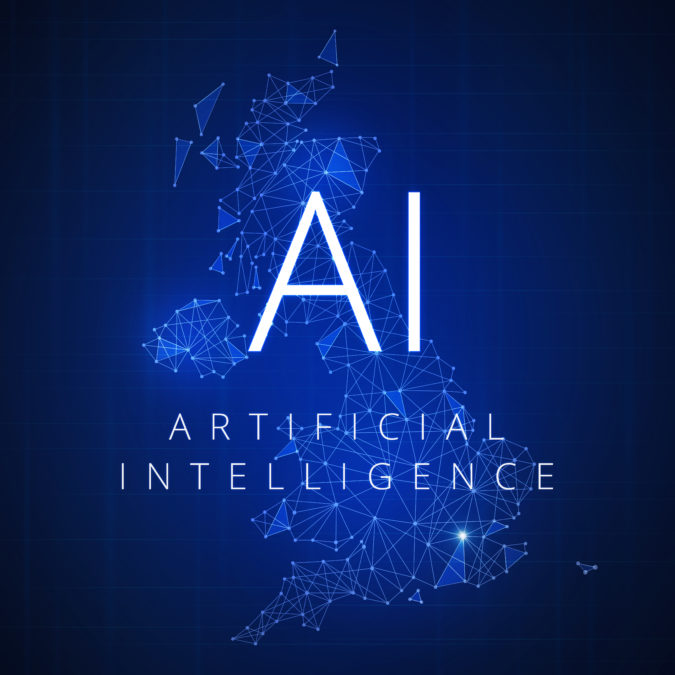This week, the Massachusetts Institute of Technology announced plans to have an AI-focused college built by 2022. This decision that many are backing to launch the US ahead in the global AI race.
Meanwhile, across the Atlantic in the UK, a recent study by Deloitte found that just 23% of the sample of UK executives who took part stated that their leadership team had a clear understanding of AI technology.
The general consensus among the participants, however, is that AI is worth investing in; 82% expressed plans to invest in that particular sector by 2020, with 41% stating that their company already had, up from 22% in the 2017 edition.
But while the plans for investment in AI technology may be there, it is paramount that staff know exactly how to get the best out of this technology, which is where educating future generations of prospective AI-associated staff comes in.
The rise of AI as a business tool — eliminating human error
The AI skills gap fits in with the wider issue of the current digital skills gap, which head of Tata Consultancy Services (TCS) Scotland, Gopalan Rajagopalan comments on:
“The UK is facing a growing digital skills gap, and for students to reach their true potential, the education sector, government and private sector need to work together,” Rajagopalan said. “Today’s children grow up surrounded by technology, but this isn’t translating to interest in technology careers.
“Scotland has a long tradition of innovation and creative thinking. The technology sector is an important part of Scotland’s economic future and TCS is committed to bridging the skills gap and showing the next generation that lucrative jobs in the tech sector are rewarding and intellectually stimulating.”
Aspects to work on
Luca DeAmbroggi, Senior Research Director at IHS Markit, has recommended two key aspects of AI education for institutions to focus on.
“The first aspect that education needs to address is probably trying to fulfil the demand for data scientists and developers. This is skyrocketing, and demand far outstrips demand,” DeAmbroggi explained.
“As of what happens in any open market, you can immediately notice such a trend, simply by analysing the price or salary paid for an expert in the AI domain that’s independent from the industry vertical.
“Education needs also to have in mind another key element in the development of AI-agents – ethics. Ethics are usually not much considered by any high-speed technology industry.
“However, whether we like it or not, AI will pose serious ethical questions in the near future on the use of human or even super-human entities.
“Nothing will stop the technology progression, but someone will need to regulate it and keep under control the potential threats that are often hidden behind any technology breakthrough.”
Organisations are beginning to find cyber threats more effectively
Keeping up with developments
Dr Yanguo Jing, an artificial intelligence educator, Associate Dean in Enterprise and Innovation and member of the National Institute of Coding steering board at Coventry University, expressed the importance for educators to equip their students with the skills needed to compete in a sector that he says is “influencing every corner of business and society, from wearable devices counting our steps, to targeted emails based on our purchase history, chatbots, and the promise of driverless cars.
“As educators, we have a duty to ensure our students, in all disciplines, are equipped to meet the changing realities of a data-driven society increasingly cognisant of AI and automation.
“MIT’s plans for an AI-focused college is reflective of the technology’s increasing influence and its role in changing the way businesses operate. As well as educating students, we also need to provide training to upskill existing workforces as AI technologies create new opportunities for those trained in it.”
Possible Solutions
TCS, alongside My Kinda Future, have organised annual Digital Explorers events across the country since 2017, which are dedicated to encouraging school pupils aged 14-18 to consider a career in tech. While events in Scotland were organised from the 1st-5th October 2018, a scheme under the same banner commenced in London back in July.
Additionally, self-driving technology-focused startup StreetDrone has developed a vehicle that claims to allow more affordable access to autonomous technology that was previously only available to the likes of Tesla and Google.
The brand aims to provide UK universities with the chance to test various AI tech, including creating safety apps to improve the quality of self-driving technology.
“For our part,” Associate Dean in Enterprise and Innovation at Coventry University Yanguo Jing explained, “Coventry University has established an online MBA with Artificial Intelligence Specialism delivered through the online social learning platform, FutureLearn. This new programme is specifically designed to equip future business leaders with the AI knowledge needed to make informed decisions through machine learning and big data, and help understand the social and ethical implications of AI in both business and society more broadly.”
Digital education platform FutureLearn was founded in 2012 and is owned by The Open University.
Other universities offering courses that are AI-orientated include Kent, Heriot-Watt, Nottingham and Southampton.
AI “already embedded” into teaching
According to James Silcock, Commercial Director at University of London-based digital, IT, recruitment and housing solutions firm CoSector, while AI needs to be implemented into the curriculum “as soon as possible”, teaching methods have already begun to embrace AI “in the same way IT skills overtook the need for handwritten coursework ten years ago”.
Education apps: help or hindrance?
“A good example of this is the rapid adoption of online education tools which utilise AI. Not only does the technology allow lecturers to spend more time one-on-one with students but it can also be used to monitor student behaviour.
“By collecting and analysing data through applications like Virtual Learning Environments (VLE’s) and IoT on campus, systems can identify and flag when a student is at risk or struggling with their work, or environment.”







